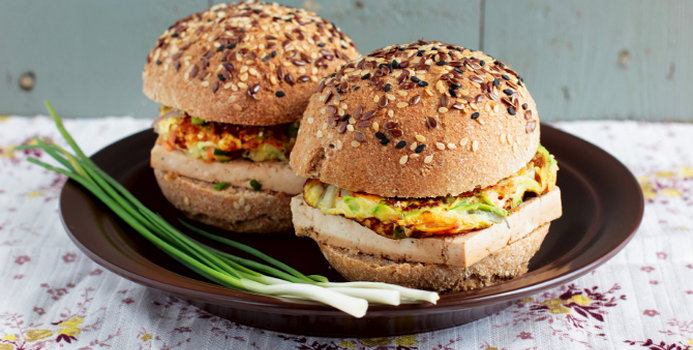Good sources of protein can be hard to find if you're a vegan. But, adding protein to a meatless diet isn't as hard as you think, even if you don't eat dairy or other animal products. Vegetable sources of protein are plentiful and easy to add to a vegan diet if you have some basic knowledge of nutrition. Here are some good sources of protein that even vegans can eat.
1. Nuts and Seeds
Nuts and seeds are very good sources of protein for vegans. Nuts provide plenty of protein, as well as other nutrients like vitamins A and E, phosphorus, potassium, fiber and essential fatty acids. Nuts can be purchased whole, flaked, ground and buttered; they're easy to add to all sorts of sweet and savory dishes. Nut butters, such as peanut butter, make easy, wholesome snacks.
Commonly eaten nuts and seeds include the following:
- Almonds, which contain 16.9g of protein per 100g serving.
- Brazil nuts, which contain 12g of protein per serving.
- Peanuts, which contain 24.3g of protein per serving.
- Pumpkin seeds, which contain 29g of protein.
2. Soybean Products
Unlike other types of beans, soybeans contain complete proteins in quantities equivalent to those found in animal products, like meat. Mose beans and legumes derive 20 to 30 percent of their calories from protein; soybeans derive between 35 and 38 percent of their calories from protein. Soybeans are also high in fiber, calcium, iron and essential fatty acids. Vegans can get high quality protein from the following soy products:
- Soymilk
- Soy cheese
- Tempeh
- Tofu
- Miso
3. Sprouted Seeds
Sprouted seeds, or sprouts such as alfalfa, contain high levels of protein, as well as vitamins A, B, C, E and K. They are also good sources of iron, calcium, magnesium and phosphorus. Sprouts should be eaten raw for maximum nutrition; you can put them in salads and smoothies. Some good sprouts to try include:
- Alfalfa
- Adzuki
- Clover
- Fenugreek
- Mung bean
- Wheat
4. Whole Grains
Whole grains are grains that haven't had their bran and germs removed by the process known as milling. This makes them a good source of fiber, as well as complex carbohydrates, vitamins and minerals.
Whole grains also contain more protein than milled grains. A slice of whole grain bread contains 3.6g of protein, compared to 1.9g in a slice of white bread.
5. Beans and Legumes
Beans and legumes are a great source of fiber and protein, though calorie content varies according to type. Garbonzo beans (or chickpeas) contain about 45 calories per 100g serving, while kidney beans contain 125 calories per serving.
Dry beans are easy to store, and typically offer between six and twelve percent of their calories in the form of protein. They also contain folate, vitmain A, iron, potassium, selenium and zinc.
6. Spirulina
Spirulina, or blue-green algae, contains all eight of the essential amino acids that make up protein, in a form that is easy to digest. Spirulina is about 65 to 70 percent protein by weight, and can be taken in supplement form.
Spirulina is also rich in vitamins, minerals and non-essential amino acids, including:
- Manganese
- Selenium
- Iron
- Folic acid
- B vitamins
Include these 6 foods in your diet to ensure you're ingesting enough protein on a daily basis. Also, don't forget to use Fitday's online journal to track your daily protein consumption.



